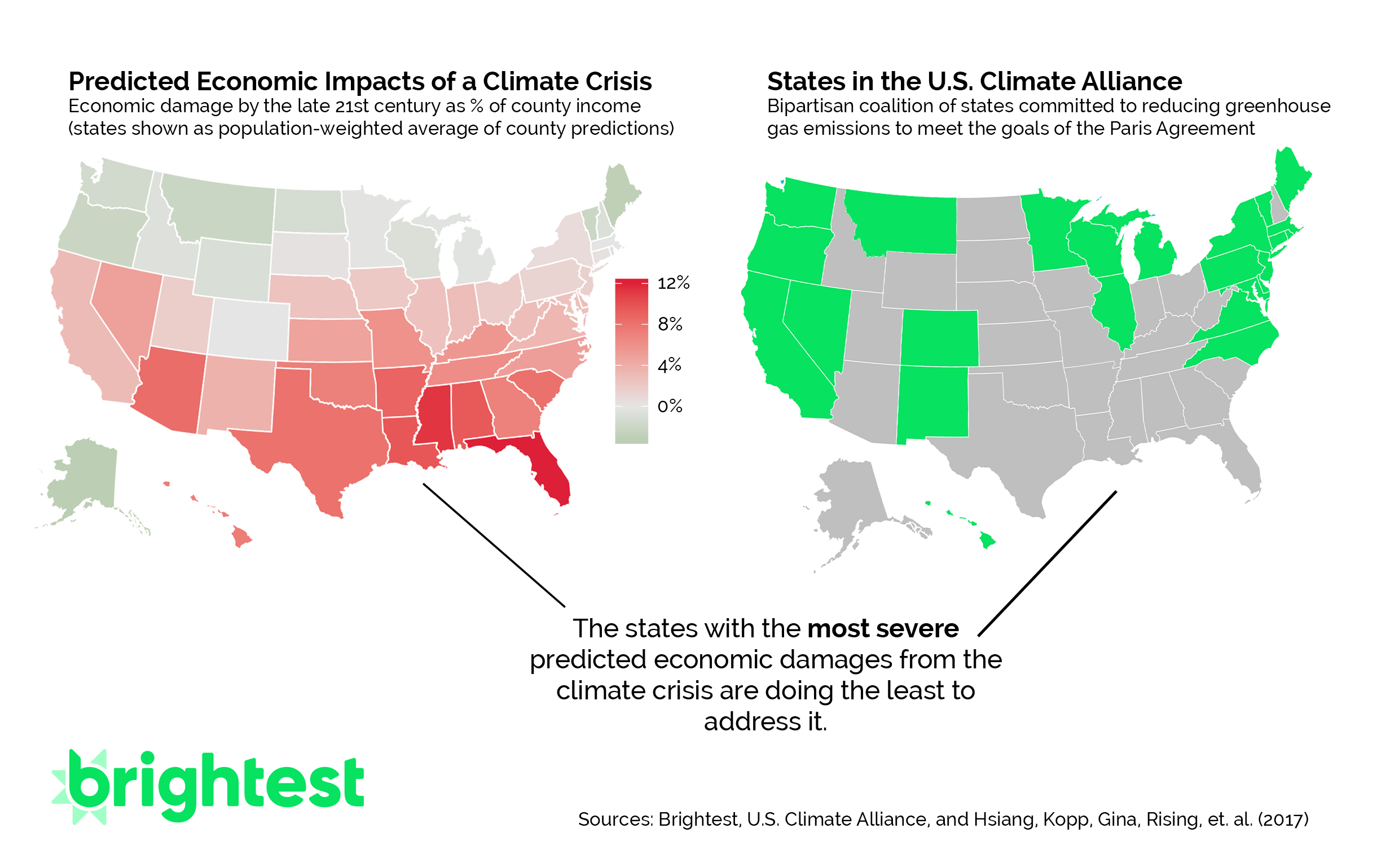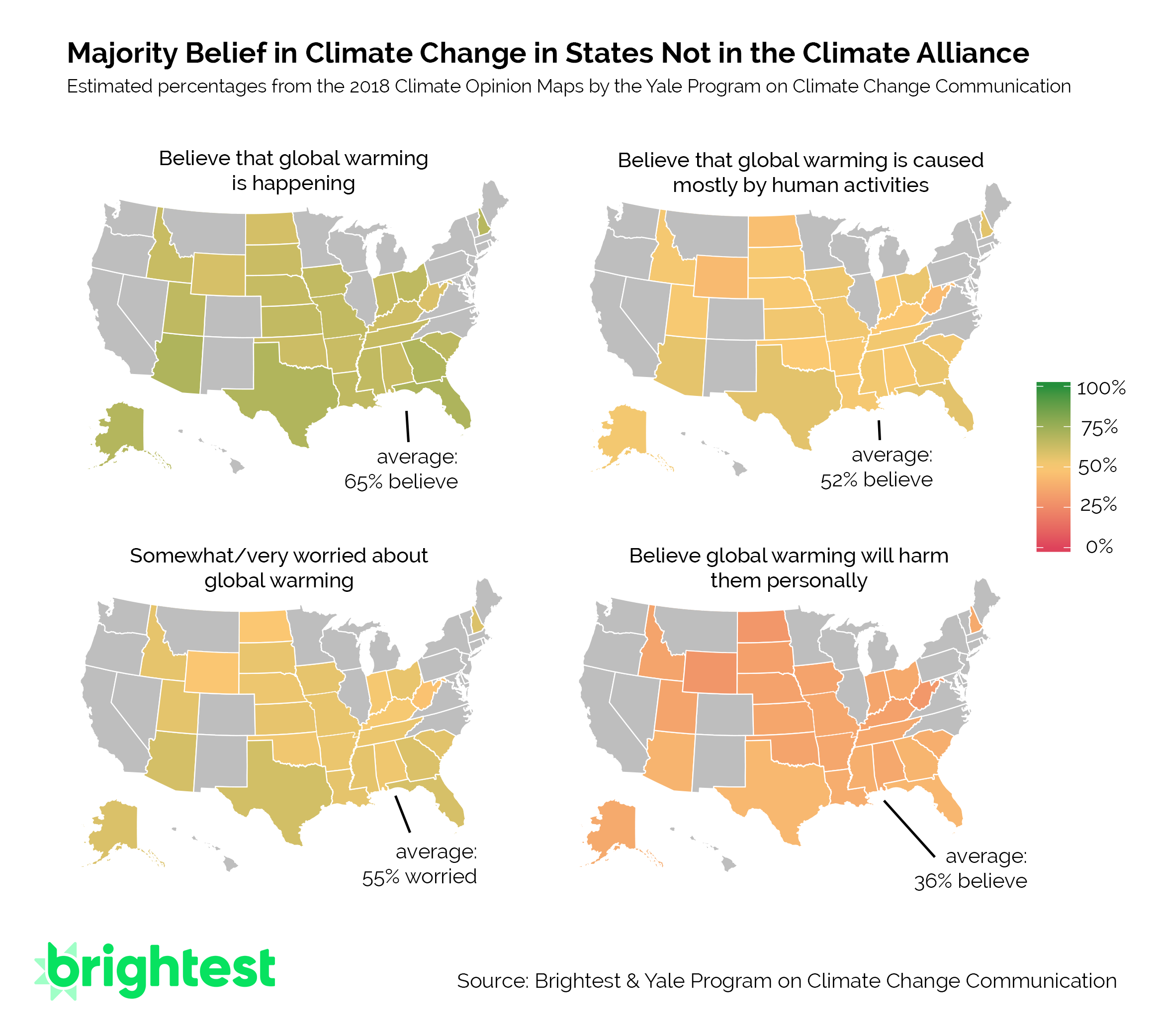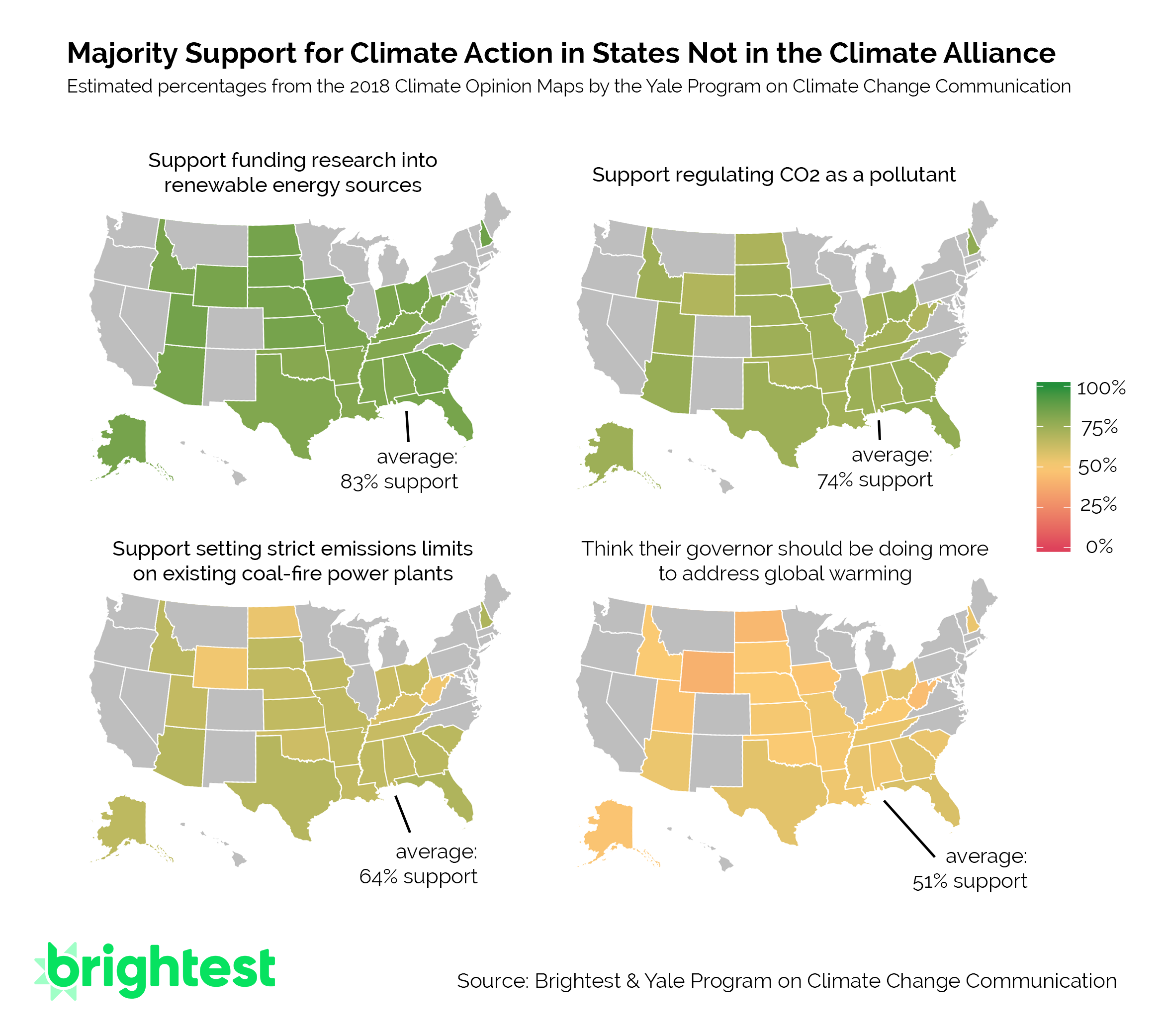Southerners Are Scared of the Climate Crisis, and Their Politicians Are Ignoring Them
Credit to Author: Shayla Love| Date: Tue, 16 Jul 2019 12:47:36 +0000
Back in 2017 when Donald Trump reneged on our national commitment to fight climate change by pulling out of the Paris Agreement, a bunch of U.S. states formed a coalition to push back. Called the United States Climate Alliance, its members would continue to behave as if they were part of the Paris Agreement anyway. As of 2019, there were 24 governors in the coalition.
But the states that decided not to join are the ones that need it the most. A new analysis of existing data sets, released Tuesday by data scientists at The University of Virginia and their software partner, Brightest, found that the states absent from the alliance—such as Florida, Louisiana, and South Carolina—will be the ones most negatively impacted by climate change.
Using survey data from The Yale Program on Climate Change Communication, the analysis also showed it’s not because those states’ residents don’t recognize the dangers they face. In fact, the majority of the residents believe that global warming is happening and that something should be done. Instead, it’s the elected officials in these regions that are driving inaction, not the beliefs of their constituents or overwhelming climate denialism. Overall, 70% of Americans believe in climate change, and most Americans also think their elected representatives should be doing more to address the crisis—even Republican voters. Seeing the data side by side shows how Republican officials aren’t acting in their constituents’ best interests.
Climate change’s economic impacts will be the most severe in the southeastern, predominantly red, states

Those same states are not part of The United States Climate Alliance, mostly because of polarization of our political parties around climate change. ”Every state not in the Climate Alliance is represented by a Republican governor—with the exception of Louisiana,” said Charlotte McClintock, the primary researcher and a graduate student studying psychology research methods at the University of Virginia.
Conservative officials have consistently voiced doubt and blocked legislation concerning climate change, even though the parts of the country they represent stand to lose the most. A recent New York Times analysis rounded up over 80 environmental rules and regulations that are being pushed out by the Trump administration, with help from Republican congress members. Inside Climate News reported that in 2018, most caucus Republicans “voted to block agencies from considering the social cost of carbon in rulemaking,” and that “only a handful spoke out against President Donald Trump’s decision to leave the Paris climate accord.”
The majority of people in these red states believe climate change is happening and want their politicians to take action

Other recent surveys have had similar findings: that actually, a majority of Republicans do believe in climate change and think we should be doing something about it. For example, 80% of Republicans think that there should be funding for research into renewable energy resources, 64% think that CO2 should be regulated as a pollutant, and 52% think that environmental protection is more important than economic growth.

McClintock said that their data visualizations show that there is political will in areas perceived to be resistant against climate change policy. “It now needs to be harnessed to replace officials who deny the reality of a climate emergency,” she said.
Politicians and their aides are wildly mistaken about what their constituents believe and want
But it could be that officials are simply out of touch with what their constituents believe, said Matteo Mildenberger, an assistant professor of Political Science at the University of California Santa Barbara, who was not involved in the new analysis. In a study from February in American Political Science Review, Mildenberger and his colleagues asked senior members in Congress what they thought public opinion was about a variety of important issues. When they compared their answers to large survey results, “across the board, we found that congressional aides are wildly inaccurate in their perceptions of their constituents’ opinions and preferences,” Mildenberger and his co-authors wrote in The New York Times in 2018. They also found that the Democratic staff members were more accurate than the Republicans, guessing closer to the actual beliefs of their constituents.
For climate change specifically, the average Congress staffer thought it was a minority of their district that wanted action taken, “when in truth a majority supported regulating carbon.” And some of that had to do with corporate interests. They found that congress staff who reported that they met with groups representing big business—like the American Petroleum Institute—were more likely to be in the dark about their district’s opinions than ones who met with group that “represented ordinary Americans, like the Sierra Club or labor unions,” the authors wrote.
As more legislation around the climate crisis comes to the forefront, including a push for a Green New Deal, it’s important for politicians to know the beliefs of the people they’re representing, Mildenberger said. Especially the ones who are already most at risk.
“Most people in these states support climate action—without even realizing that climate change is most likely to personally impact them more than other parts of the country,” researchers of the new analysis wrote. “Our findings suggests there is substantial, untapped public support for action on climate—even in more conservative states. The climate positions of GOP leadership do not seem to represent the majority of their constituencies.”
Follow Shayla Love on Twitter.
Sign up for our newsletter to get the best of VICE delivered to your inbox daily.
This article originally appeared on VICE US.